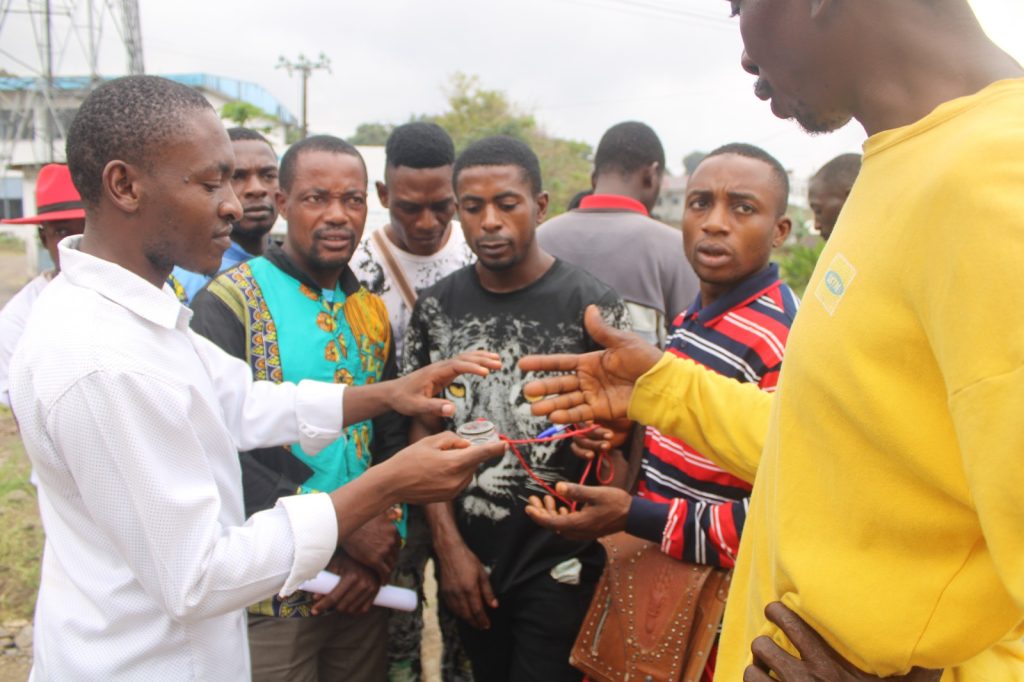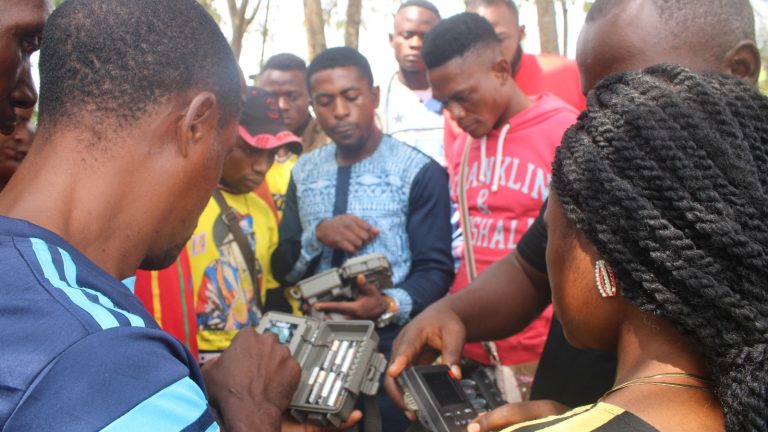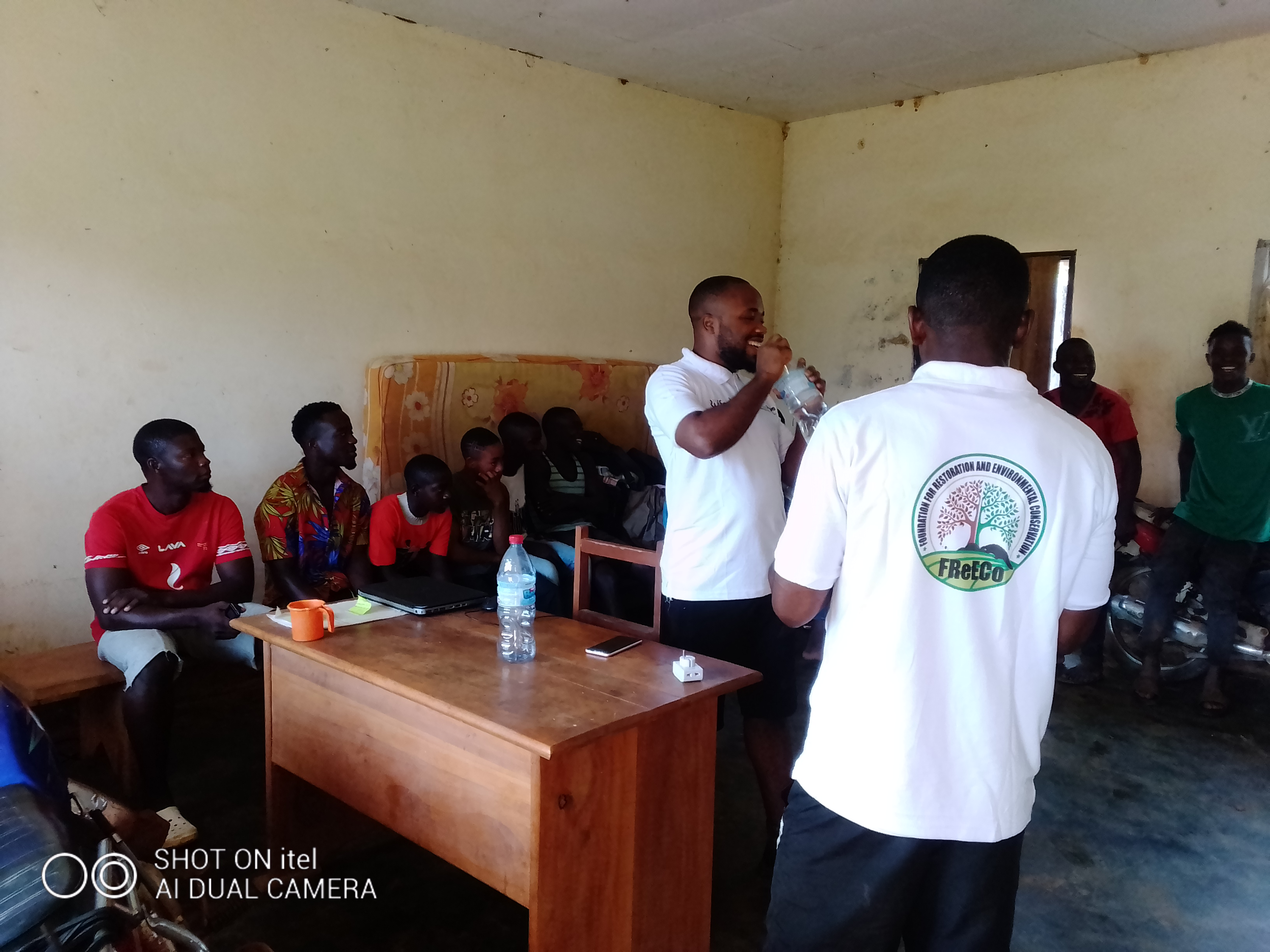Pangolins are threatened and classified as Vulnerable on the IUCN Red List, listed on Appendix I of CITES and fully protected by Cameroon’s
Wildlife conservation law as ‘class A’. Their habitats are under threat of degradation and fragmentation by human activity such as deforestation, farmland encroachment and bushfires. Literature has it that one Pangolin could consume more than 7 million of termites or ants annually (Challendar, 2009). The existing habitat disturbance as recorded during previous studies (Field observation of 2020/2021) threaten their welfare in their habitats, reduce food availability, and foraging capacity (Difouo et al., 2020) and reproduction leading to the local extinction. There is a limited number of government personnel charged biomonitoring of the park and to take off snares used to hunt pangolins. Thus, training of local guides as community rangers is vital for the biomonitoring and conservation of pangolin in Deng-Deng. The DDNP is in the Northern Congolian forest-savanna mosaic ecoregion situated against the forest of the Eastern Region and the desert of the Adamawa Region.
Project outcome will help to understand the efficacy of using locally motivated individuals as citizen scientists to protect pangolins, thereby enabling forecast of potential period for species population and habitat restoration.



Though the project is still at its early stage, thanks to the Mohammed Bin Zayed (MBZ) Species Conservation Fund, 06 local field assistants have already been trained in biomonitoring of pangolins using SMART survey tools; camera trapping, GPS, cyber-tracking, and data collection and recording on field data forms. They have also been educated on environmental and research ethics which is necessary to provide reliable and consistent research information. The local assistants now function effectively as citizen scientists (Couvet et al., 2008; Eden, 1996); and will be supported in providing consistent information and biomonitoring data to support pangolin welfare in Deng-Deng. The transformed local field assistants are now monitored, and will be certified as Community Rangers coordinated under FReECo in order to collaborate with government owned Eco-guards who are limited in number. Their collaboration will sustain an efficient conservation and ecosystem free of human interference including removal of trapping devices, destruction of hunters’ houses, recording of every human signs, document pangolin and other species signs their habitat use and evolution. In future more disengaged hunters will be recruited. This project targets to establish a standard community-based collaborative monitoring system based on feedback and rapid intervention response towards human activities, pangolin ecology, population status and other field reports.